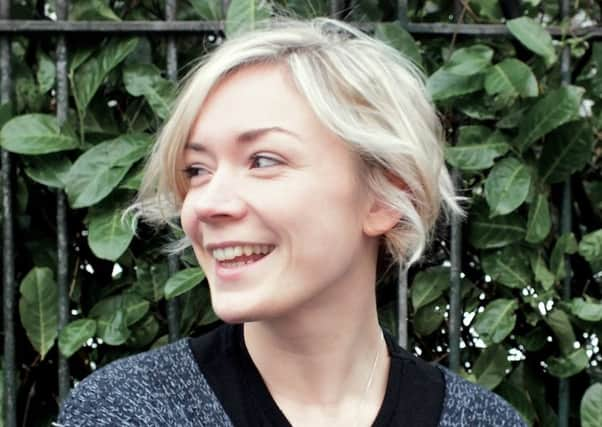Common Weal unveil 101 ideas to transform Scotland


The Common Weal has published a new book outlining 101 policies it claims could be implemented under existing Holyrood powers and have a transformative effect on society.
The establishment of a national investment bank, a new land value tax and decentralising local authorities are among the recommendations in A Book of Ideas.
Advertisement
Hide AdAdvertisement
Hide AdIt was compiled by a team of more than 40 researchers, academics and policy experts.
The authors hope the ideas contained will strike a chord among the thousands of Scots who were engaged by last year’s independence referendum campaign.
“It’s about creating fairer and more socially just policies for Scotland,” said Katie Gallogly-Swan, campaigns and communication manager at The Common Weal.
“With the 2016 Holyrood elections we have a unique opportunity. Throughout the referendum, on both sides, there was a desire for change.
“We know what our limitations are. The referendum exposed that. Holyrood doesn’t have the biggest tax powers. But this book suggests 101 things that could be done right now to transform Scotland.
“It’s about encouraging the parties to consider a radical policy agenda, as well as saying to them: we can do this. These are ideas which could transform democracy and transparency in Scotland.”
The Common Weal became a think-tank in its own right in 2014 after splitting from the left-wing Jimmy Reid Foundation.
The think-tank is funded by regular donations from supporters. It launched its own news service, Common Space, last year, and has a dedicated campaigns and policy team.
Advertisement
Hide AdAdvertisement
Hide AdThere are also more than 60 Common Weal voluntary groups across the country which coordinate individual local campaigns.
“Common Weal began as a small project during the referendum campaign. It asked the question: ‘if Scotland did achieve independence, what would that future Scotland look like, and what could we do with the powers independence gave us?” Gallogly-Swan added.
“We published almost 50 researched papers and reports from experts, academics and policy makers who wanted to contribute. Overwhelmingly they addressed how to create a fairer, more socially-just society.
While some policy ideas in the book are more likely to be adopted than others, Gallogly-Swan points out that the SNP has previously talked of creating a national investment bank.
“I think all the parties are smart enough to realise the electorate in Scotland are among the most engaged in the democratic world. If they choose not to put certain policies in their manifestos then people will not be satisfied,” she continued.
With recent opinion polls suggesting the SNP is on course to win a second Holyrood majority, the book’s authors are hoping their message will be heard by Nicola Sturgeon and her cabinet.
“The SNP’s membership has soared. They were inspired by the referendum campaign and excited by facilitating change in Scotland,” she said.
“But we’re also confident that some of the people who hold the levers of power in Scotland want change to. The will is there in Government.
Advertisement
Hide AdAdvertisement
Hide Ad“We have a whole range of policies that would decentralise power in Scotland and give it back to the people. Right now, consultation in Scotland is very badly managed. We have some of most centralised councils in Europe. This can change. Why can’t we create less centralised councils? Why can’t we create citizen juries to ensure the actions of government are in the interests of people?
“Those who have engaged in politics in the past couple of years in Scotland want to see routes into participation created.”
“If the bigger parties decide not to engage with us we will just have to continue working and try to encourage them to consider the alternatives.”